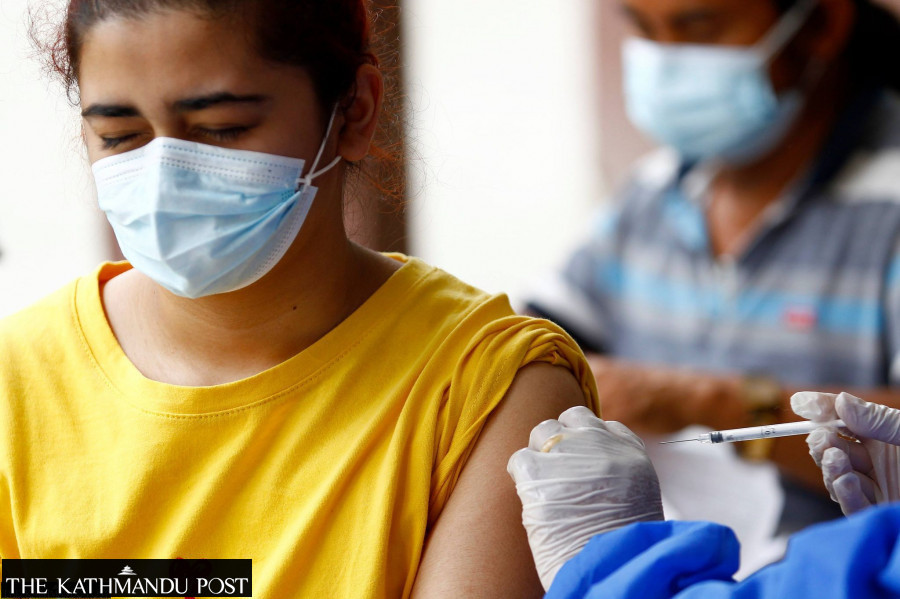Health
Pfizer-BioNTech’s bivalent Covid-19 vaccine likely to arrive this week
Experts urge authorities concerned to launch an awareness drive to boost vaccine uptake.
Post Report
The first lot of 1.5 million doses of Pfizer-BioNTech’s Covid-19 bivalent vaccine is most likely to arrive this week as the COVAX facility’s jabs supply schedule falls on February 3.
Officials at the Ministry of Health and Population said that the vaccine doses will be used as booster shots (both first and second) throughout the country.
“We will use the vaccine doses as booster shots,” said Sagar Dahal, chief of the immunisation section at the Family Welfare Division of the Department of Health Services. “Those who have not yet taken booster shots can get the jabs and the second booster shots will be administered to people of a specified age group and high-risk populations.”
Pfizer-BioNTech’s is the only bivalent jab that has got an emergency use approval from the Drug Advisory Committee. A meeting of the committee last month granted emergency use authorisation to the bivalent vaccine.
The bivalent Covid-19 vaccine includes a component of the original virus strain as well as a part of the Omicron variant to provide a broad protection against Covid-19.
The vaccine is called bivalent Covid-19 shot as it contains two components—original virus strain and Omicron BA.4 and BA.5 sub-variants. Doctors say a bivalent Covid-19 vaccine may also be referred to as an “updated” Covid-19 vaccine booster dose.
Health ministry officials said that the bivalent vaccines are part of the 9.2 million doses promised to Nepal by COVAX, the United Nations-backed international vaccine sharing scheme. The facility has supplied around three million doses so far.
“We have also ordered an additional 1.5 million doses,” said Dahal. “But the vaccine will arrive in several lots. We are expecting a supply schedule of the vaccine from the COVAX facility.”
The uptake of Covid-19 vaccine has declined following a drop in infection rate after the third wave of the pandemic driven by the Omicron variant in January last year. Health authorities had launched a booster drive on January 17, only after a new wave of the virus hit the country. So far, 7,972,791 people have been administered the booster shots, according to the ministry.
Public health experts say authorities should start their preparations to increase vaccine uptake.
“Without launching an awareness drive and convincing people to take booster shots, it will be very difficult to increase the vaccine uptake rate,” said Dr Jhalak Gautam, a public health expert. “Arrival of sufficient doses does not mean that uptake of the vaccine will also increase.”
Months ago, the health ministry had decided to administer the second booster shots to vulnerable groups—people above 55 years old, those having compromised immunity and frontline health workers. However, their vaccinations have yet to start for various reasons, including the lack of doses and official lethargy.
Experts say vaccination is the only reliable way to prevent severity and deaths from Covid-19 infections and suggest administering second booster shots at the earliest.
Nepal so far has used Covid-19 vaccines developed by the University of Oxford and the pharmaceutical giant AstraZeneca, manufactured in various countries of Europe, India and Japan, the Chinese Vero Cell, and the US-made Janssen, Moderna, and Pfizer-BioNTech.
So far, 12,020 Covid-related deaths have been reported in Nepal, according to the official count. The health ministry said as many as 22,324,933 people, or 76.5 percent of the total population, have been fully vaccinated.




 11.84°C Kathmandu
11.84°C Kathmandu














